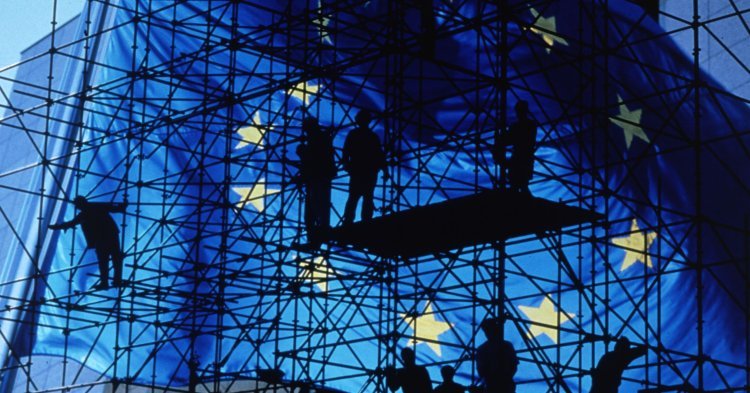The European Union has always been praised as a twist of fate by federalists, whereas supporters of the national state criticised it as too bureaucratic and far-reaching. Current crises and institutional deficits impede even more a common European identity. However how does the rest of the world think of Europe?
From crises and hope
Refugees, Euro crises, youth unemployment: Whoever opens a European newspaper these days receives quickly the dire image of a war torn Europe. And the buzzword democracy deficit is often cited by experts when it should be explained why many citizens are still sceptic towards the European Union. The demands for an institutional reform of the EU are getting louder. Although it would be good for the EU to pat its shoulder for a short moment and be proud of what it has achieved so far. Then other countries admire the project from far. Many people in Africa still hope for an economic future in Europe, although the current interaction with refugees is more than problematic.
At the same time the resource conscious Europe is in questions regarding energy a role model and cooperation partner, such as by the desert energy project “Desertec”. The USA on the other hand enthuse about the “romantic Europe”: the small allies, historic buildings and the comparable small distances. In three hours with the train to Paris? Completely unthinkable in the country of big distances.
Map of prejudice
Indeed the opinions are often influenced from clashes and prejudices. In 2014 the internet concern Google published an interactive map which is based on automatically completed searches of its users. Persons which for instance typed in the term „Why is Sweden so…“, received the most suggestions of the adjective „happy“. However the map mirrors also structural deviations within Europe. While nearly all eastern European countries count as poor, many of the rich Western European countries are seen by Google users as rich, beautiful or happy.
Time for reforms
The positive feedback is nonetheless not an opportunity for Europe to relax. The transatlantic relationship is since the NSA-scandal and the TTIP negotiations more than strained and the interaction of the EU with the refugees is criticised rightly as inhumane and unbearable. The positive external view shows however that Europe has the potential to be great and move things. The current problems and self-critic should be more than a reason for reform and change.



Follow the comments: |
|
